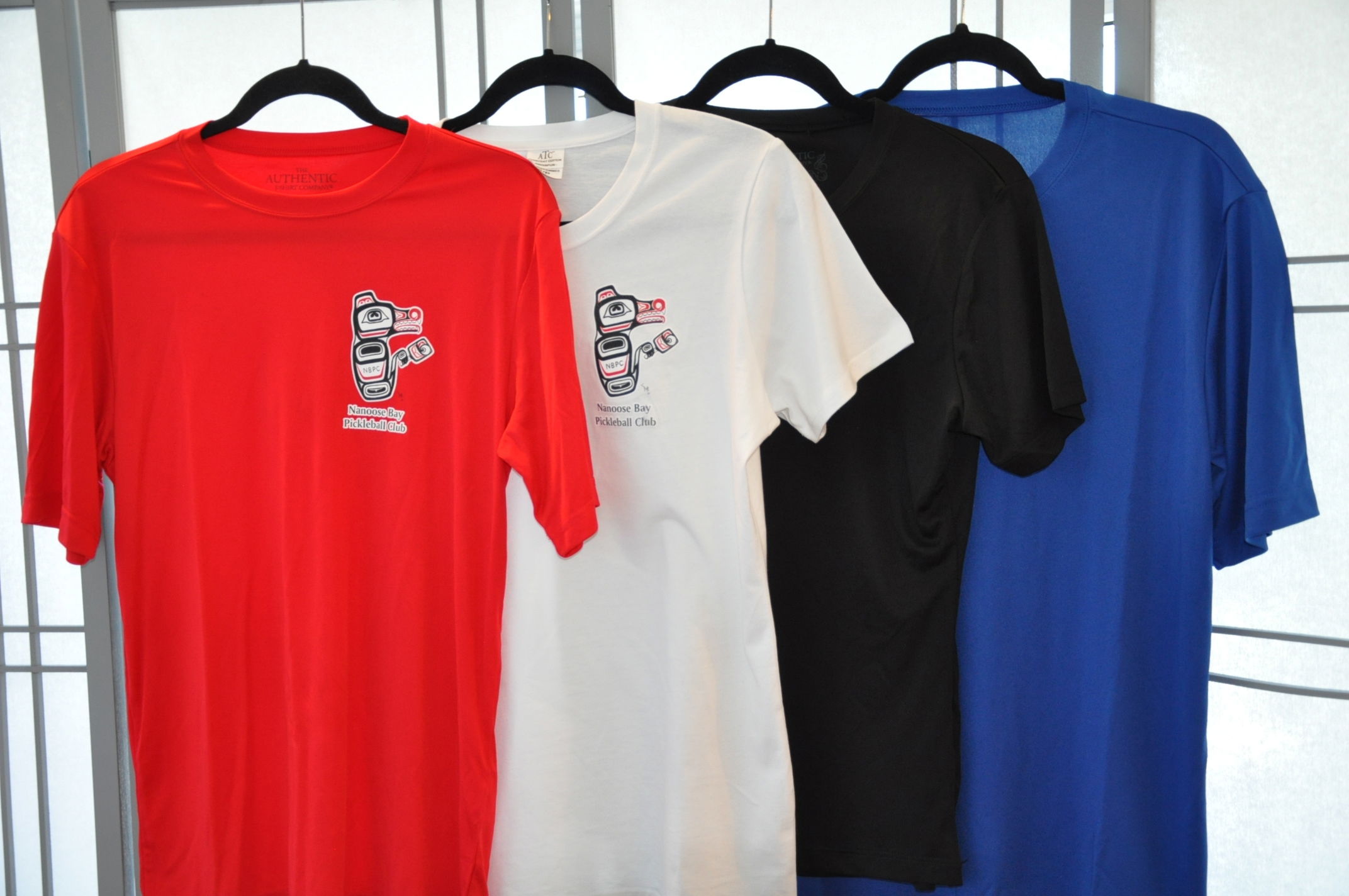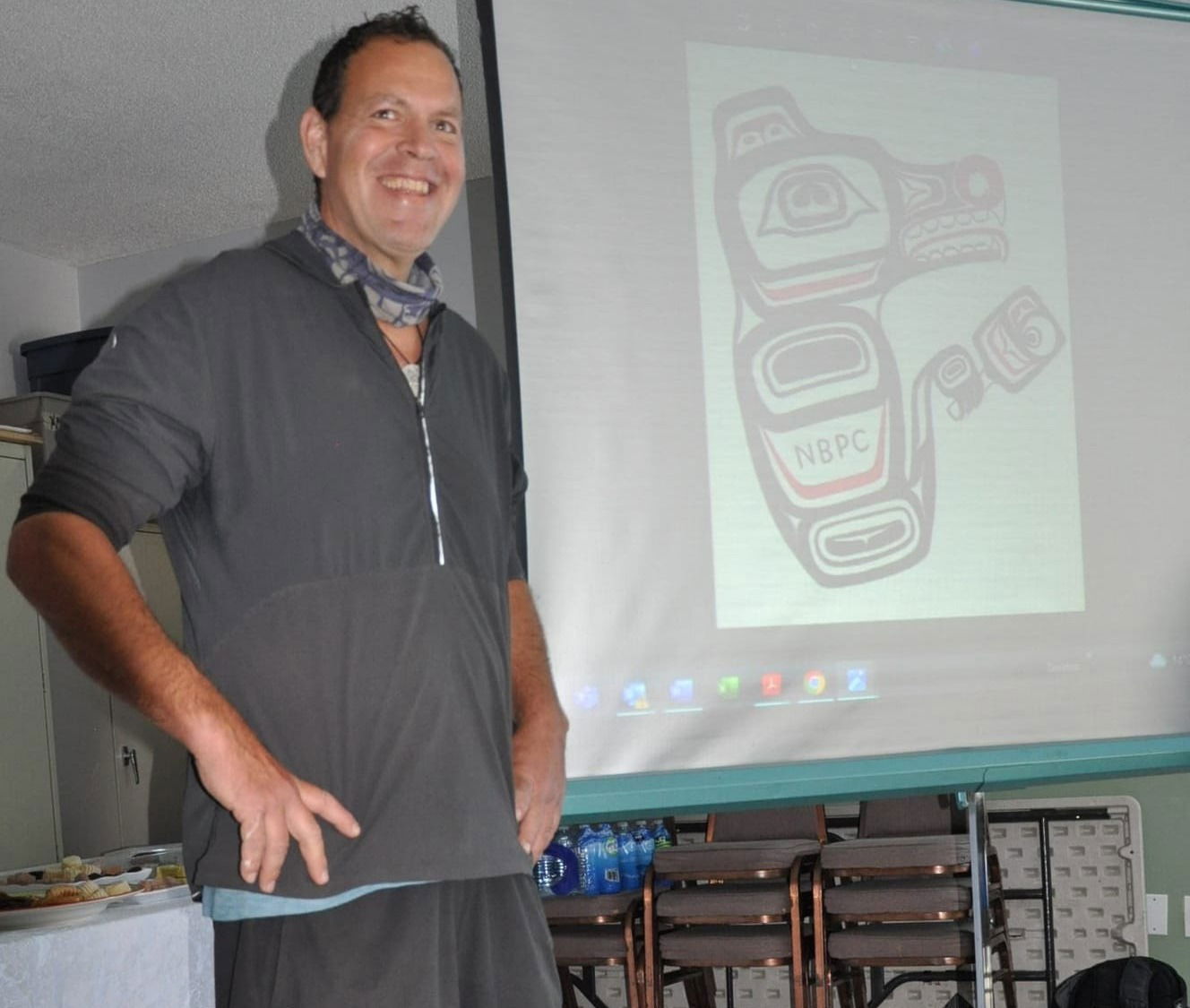Nanoose Bay Pickleball Club
Fun and Fitness Combined in Every Rally
Contact Us
- Jack Bagley Field, Nanoose Bay BC
- nanoosebaypickleballclub@gmail.com
- Club Play Sessions - 08:00 am-1:00 pm Daily and 6:00 pm - 8:00 pm Mon., Wed. & Fri. only The Club has exclusive use of the 4 pickleball-lined courts in the large fenced area that includes a tennis net
About Us
We acknowledge and give thanks to the Snaw-Naw-As First Nations on whose ancestral lands we play.
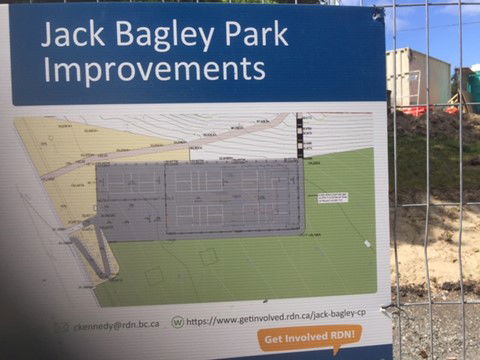
Looking for a fun and engaging pickleball experience? Look no further than Nanoose Bay Pickleball Club! As a recreational club dedicated to promoting the sport of pickleball, we provide opportunities for players of all levels to come together, learn, and play. Join us today and be a part of our enthusiastic pickleball community!
Schedule
Information regarding the club's 2026 Schedule will be posted once determined.
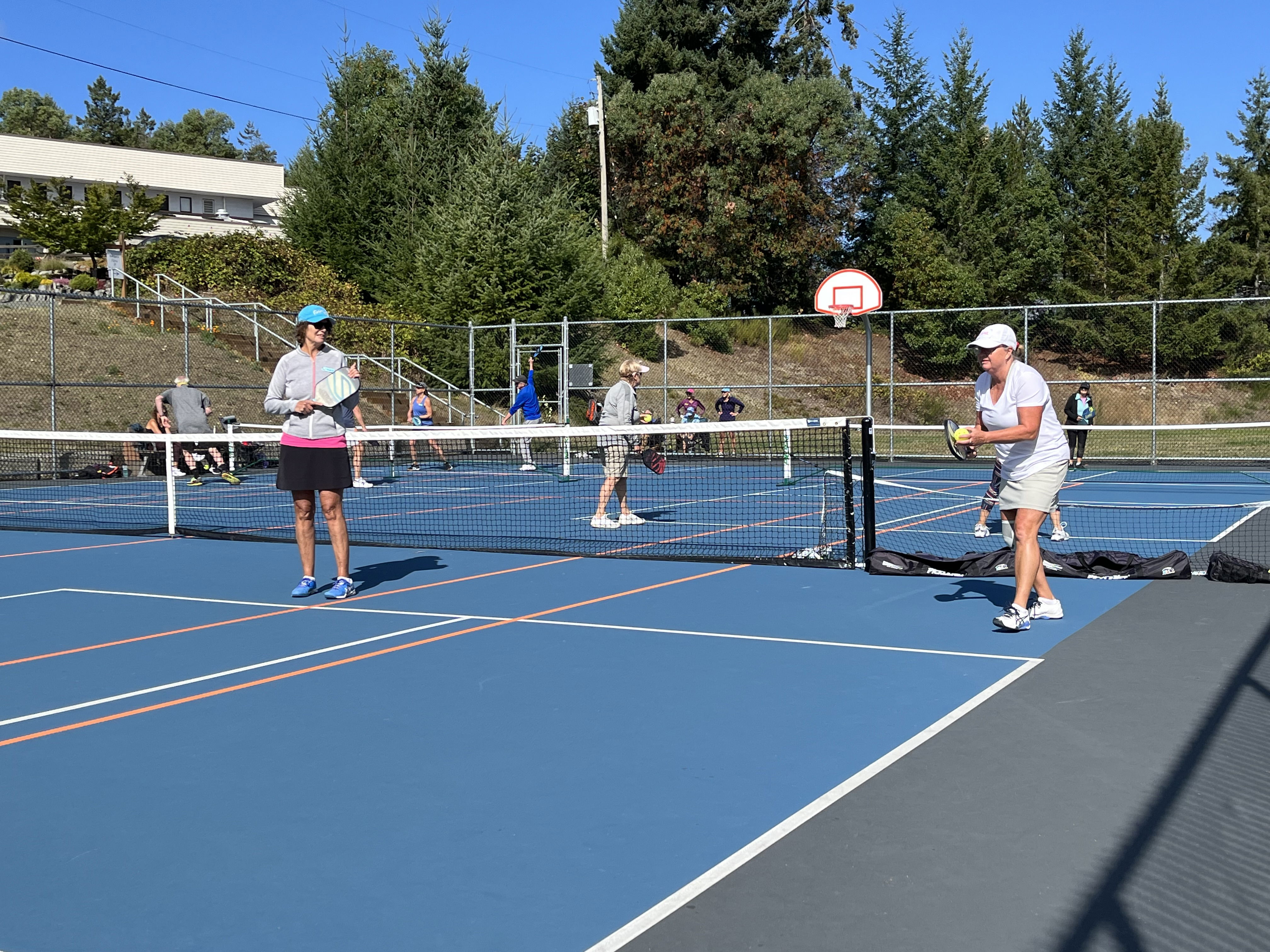
Signup Genius
The club uses SignUp Genius to sign members up for group play sessions. Invitations to play are sent out on Wednesdays. To Signup for a session, click HERE and login to your SignUp Genius Account.
Group Structure
Group Structure - 2026
Group Structure
Group Structure - Information regarding the club's 2026 Group Structure (or alternative structure) will be posted once determined.
Types of Play Sessions
Challenge Up Process
Challenge-Up Process
Information regarding the club's 2026 Challenge Up process (or whether it will be discontinued) will be posted once determined.
Non-Members Policy
Weather Policy
Pickleball Machine Policy
Pickleball Machine Policy
Pickleball Ball Machine Our club has a pickleball ball machine, which is locked-up in the on-site equipment storage room. The ball machine is available for use during Club session times only and by Club members only, and only if at least one of the Club members has watched the 5-minute operational video which can be found at the following link: https://www.youtube.com/
Use of the ball machine is also subject to there being someone available (for example, a Court Coordinator) to unlock the equipment room and the ball machine lock for you. Also, if a Court Coordinator or Skills instructor is conducting a session, then your use of the ball machine is subject to their approval.
Here are a few examples of when the ball machine might be useful:
- if an odd number of players are signed up to play;
- if there is a low turnout for a session;
- at a Skills & Drills session; and
- at a Reservable session.
Some points to keep in mind about the ball machine:
- best used in the cage court #1 (less ball chasing);
- there is a box of PINK coloured balls in the storage room for use only in the ball machine;
- the key to the storage room cage padlock also unlocks the chain which locks up the ball machine;
- after use, please reconnect the ball machine to the battery charger (cord in storage room);
- the remote control is strapped to the handle;
- at some point in the season, the inner workings of the machine will get “gummed up” and will need to be serviced; so, if you notice that the ball machine is not performing well, please email nanoosebaypickleballclub@
Officers & Directors
Nanoose Bay Pickleball Club Officers and Directors
Director & President - Ken Collingwood
Director, Vice-President and Secretary - Scott Perrin
Director & Treasurer - Roxanne Broadbent
Director - Chris Thomas
Director - Vicki Voros
Tournaments
Picklemania Tournament (August 2025)
Our club held another very successful team-based fun pickleball tournament on Saturday, August 23rd. The 40 players who came out for the day of fun were not disappointed. Teams consisted of 10 players each and they spent the day competing in pickleball and non-pickleball events. The “winning” team would be the team that earned the most points during the day and EVERYTHING counted…. Open Play pickleball, 10 card cribbage, rummikub, Mexican Madness pickleball, and bucket golf. In the morning, everyone played 4 games (15 points or 14 minutes) of Mexican Madness. After a great lunch, we returned to open play with Paddles Down, and we kept playing until it was just too hot to continue. Team Red was the winner with 132 points followed by Team White with 130 points. We gave “cash” prizes to all the teams, which made everyone very happy! Thanks very much to John Philip, Patti Rogers, Carole Bajus and Elaine Ferguson for all their good work in putting on this great event for our club. For pictures of the four teams, please see the Picture Gallery section below.
Court Coordinators
Court Coordinators
Information regarding the club's 2026 Court Coordinators will be posted once determined.
Committees
Club Committees
Membership Committee - Roxanne Broadbent, Ronda Buecking
Communications & Website Committee - Gillian Redpath (Co-Chair), Kelly Francis (Co-Chair), Scott Perrin, Roxanne Broadbent, Wayne Overton
Tournaments, Player Development & Challenge Up - Chris Thomas (Chair) Brian Alexander, Patti Rogers, Scott Perrin, Ken Collingwood
Court Usage - Roxanne Broadbent (Chair), Scott Perrin,
Social Committee - Elaine Ferguson, Ellen Freestone, Vicki Voros
Court Coordinators - Patti Rogers, Kelly Francis
Fundraising - Deb Collingwood (Chair), Rhonda Alexander, Clara Sabina
Equipment & Facilities - Gary Connerton (Chair), Sue Connerton, Tim Rann
Sign-up Genius - Gill Redpath, Kelly Francis
Organizational Documents
NPBC Certificate of Incorporation
NBPC Constitution
NBPC Bylaws
Annual General Meetings
Please save Saturday May 2, 2026 as the date for our club's 2026 Annual General Meeting (AGM).
2025 AGM Documents
2024 Annual General Meeting
Minutes
Minutes (AGM) - May 3, 2025, minutes for this meeting will be posted once finalized.
Minutes (AGM) - May 4, 2024
Minutes (AGM) - October 4, 2023
Procedures, Policies & Forms
Picture Gallery
PickleMania Tournament - August 2025
The Winning Team - Team Red
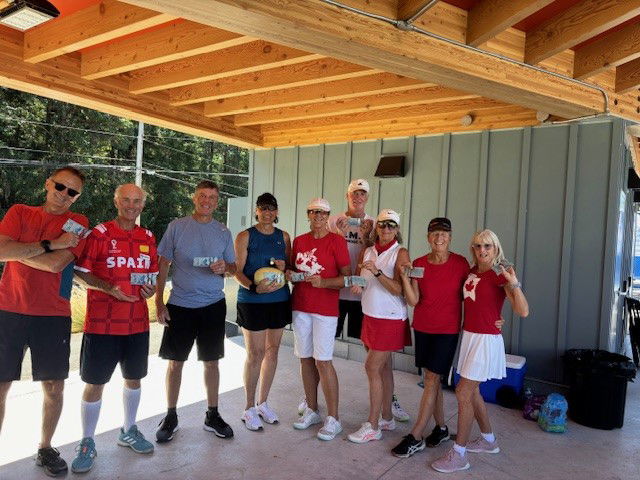
Team Blue
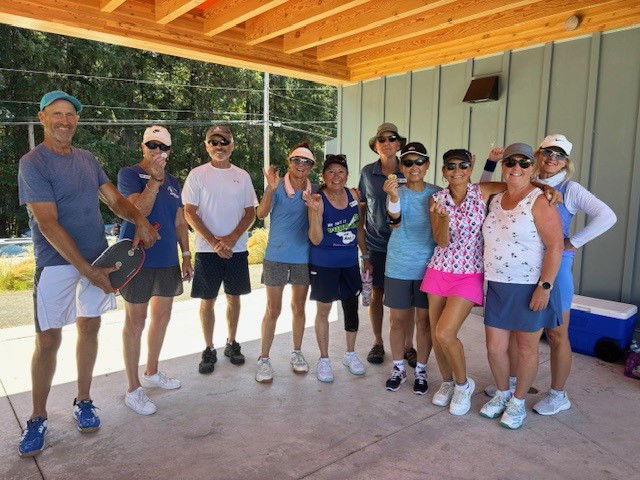
Team Green
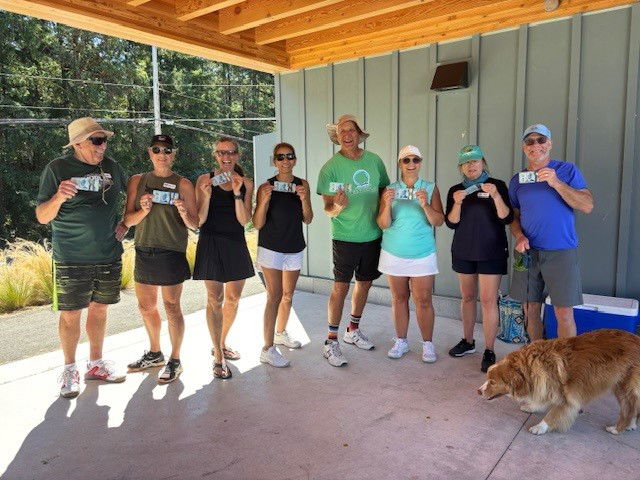
Team White
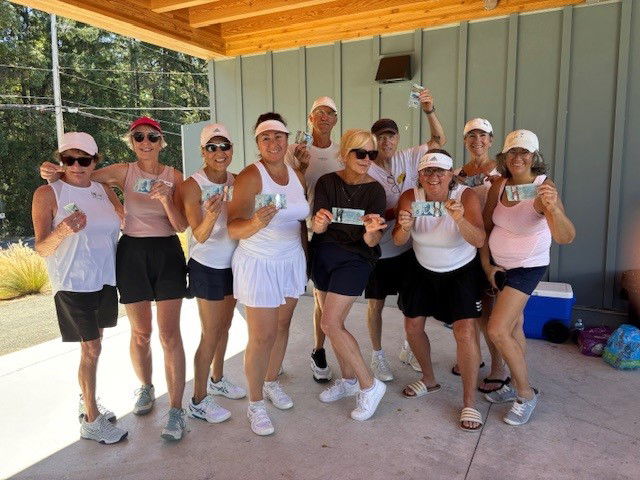
NBPC Olympics Silly Tournament - June 7, 2025
Ball Balancing
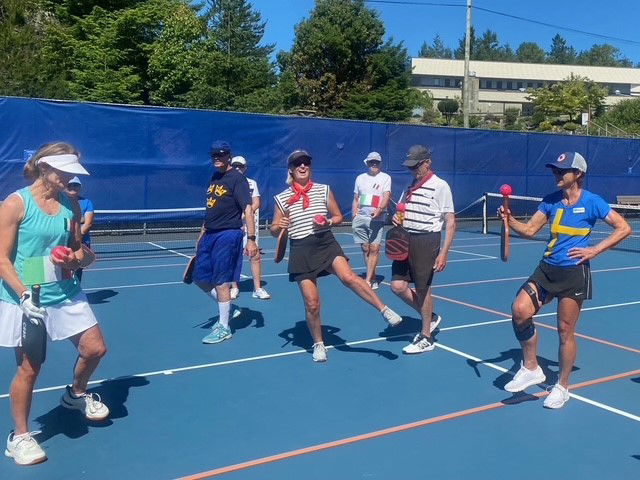
Spoon Relay
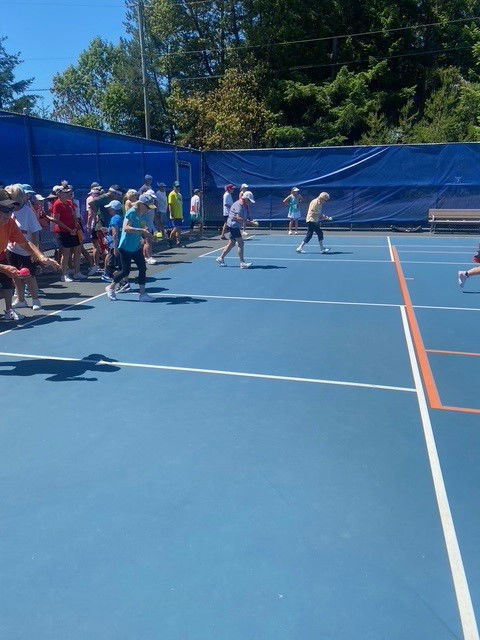
Team France
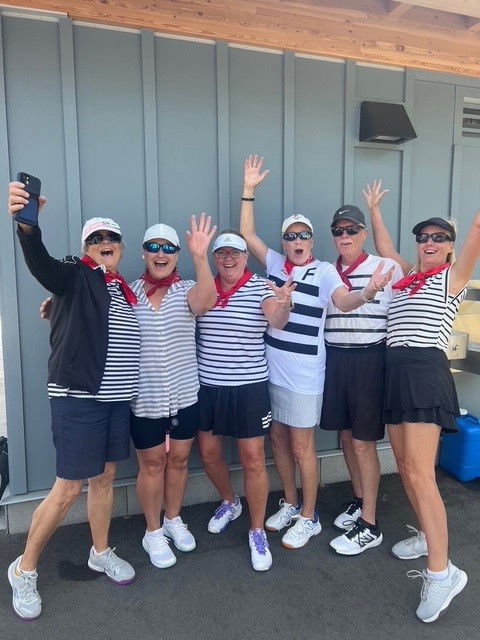
Team Brazil
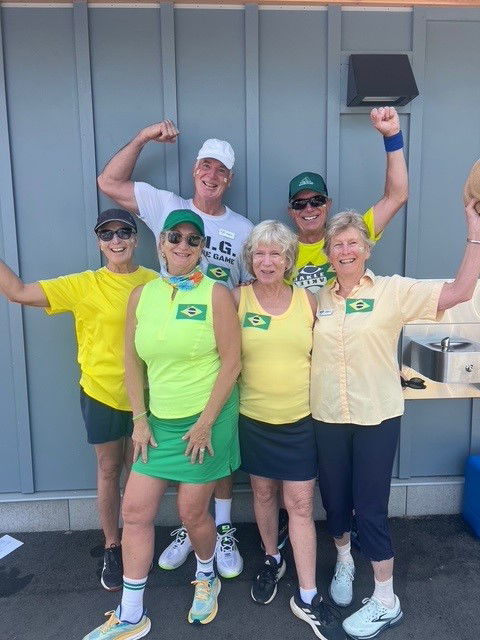
Team Canada
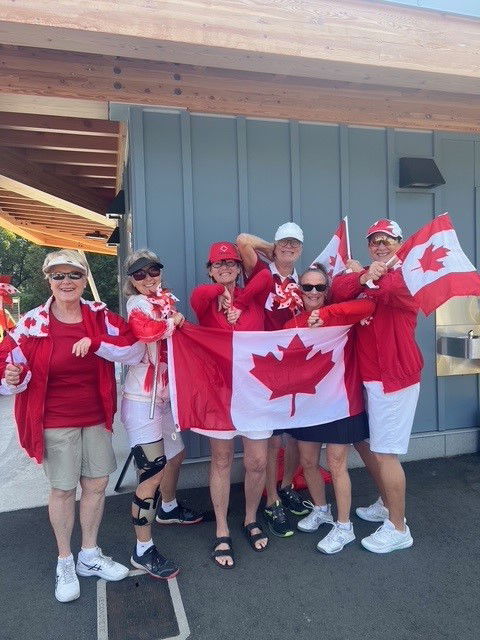
Team England
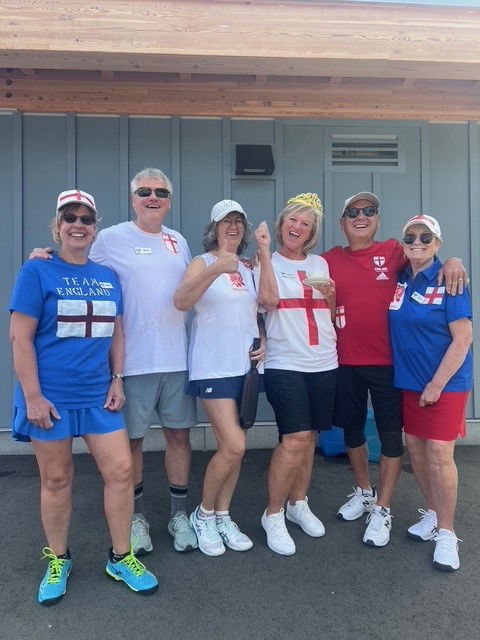
Team Mexico
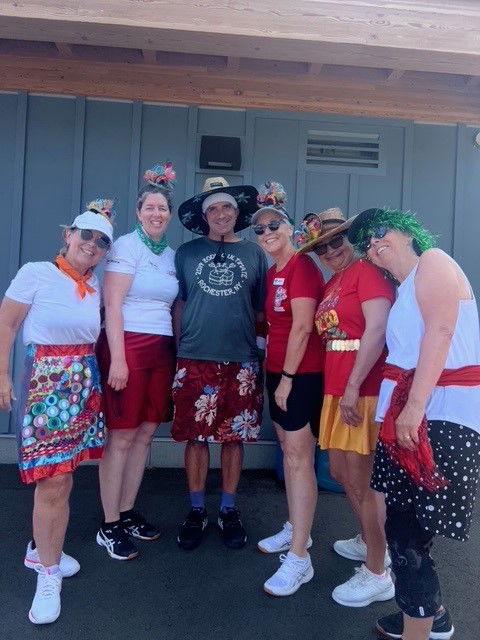
Team Sweden
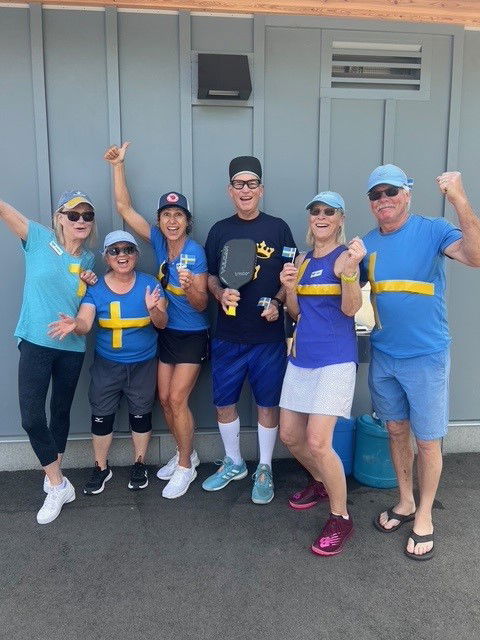
Team Netherlands
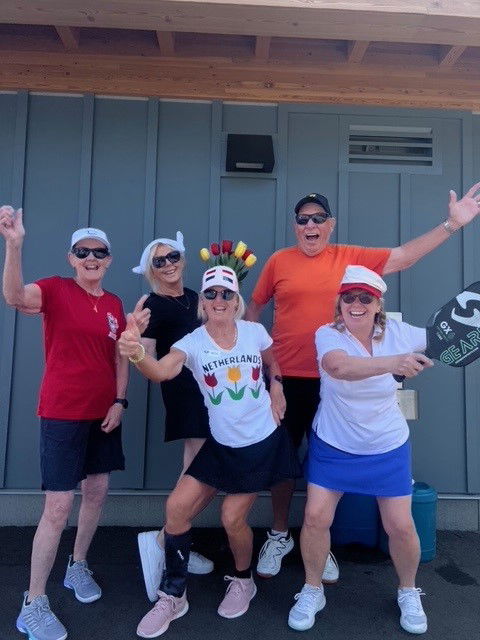
Team Italy - The Gold Medallists!
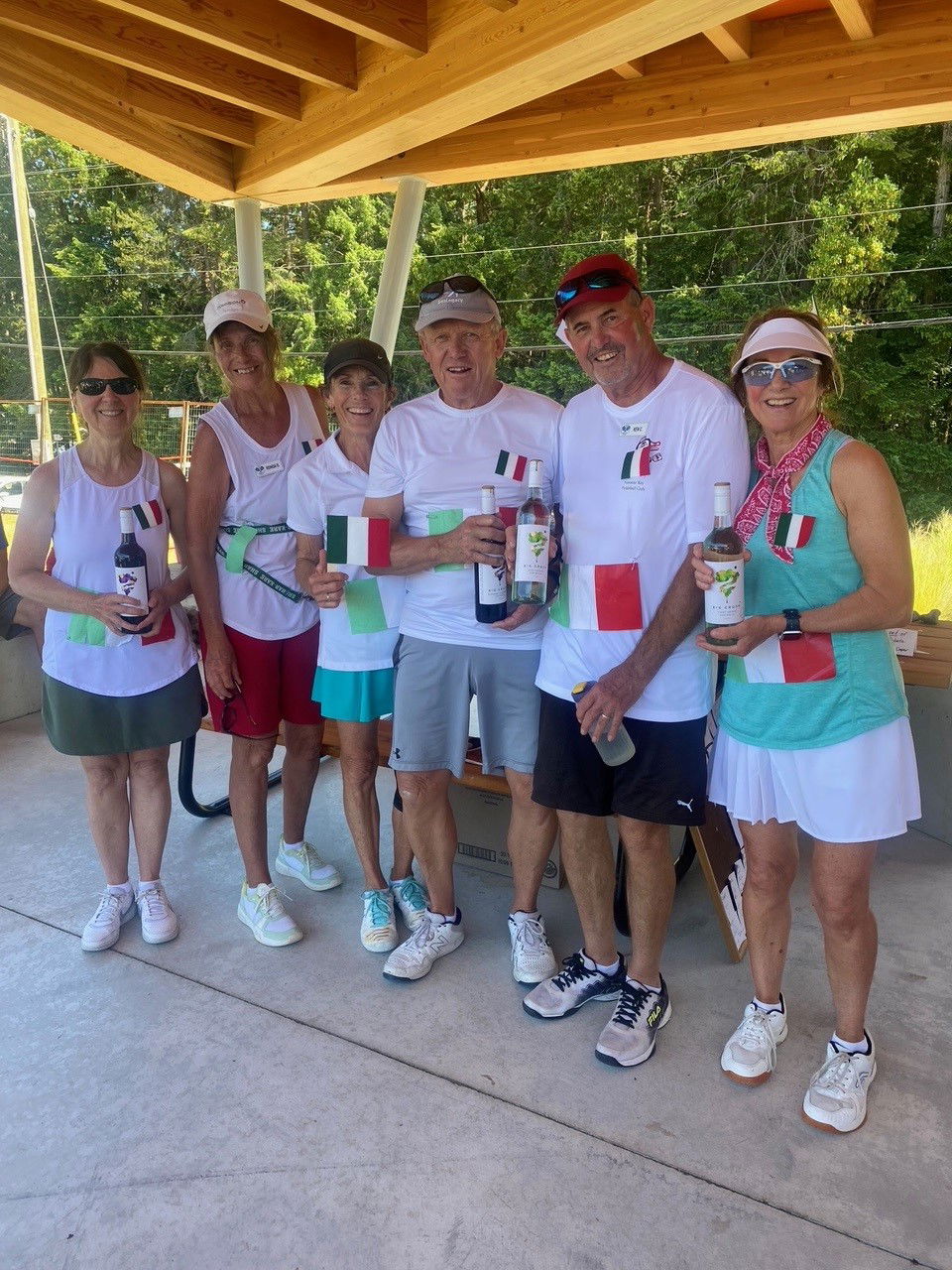
Nanoose Bay Pickleball Courts in the Spring
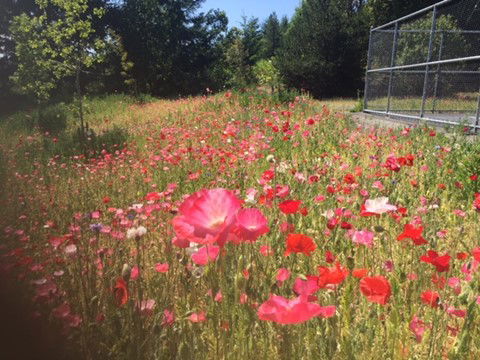
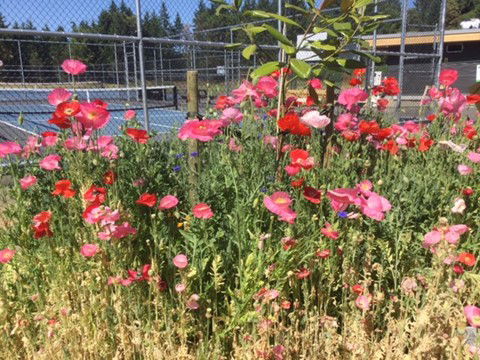
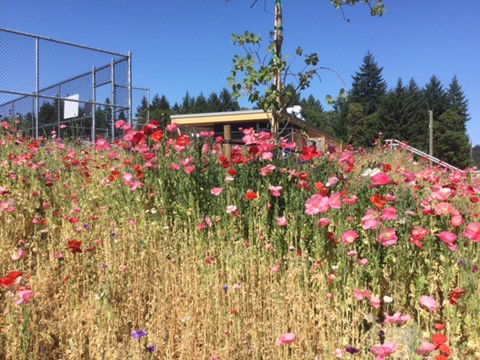
Gary & Sue Connerton
On June 7th, our club put on a fabulous “Silly Olympics Tournament”, which was a huge success. There were 8 teams (of 6) which competed throughout the morning in a series of “olympic” games (including pickleball, ball-balancing, spoon-relays, cornhole, bocce, and water-balloon tossing) and then enjoyed a nice lunch followed by some more pickleball and the awards ceremony. Everyone had a great time, and congratulations to the gold medalists, Team Italy! We all owe a huge amount of thanks to our Tournament Committee (Chris Thomas, John Philip, Lisa Baker, Roberta Perrin, Carol Bajus and Patti Rogers) who really outdid themselves with this one, and thanks as well to our tournament sponsors & donors (listed below in our Sponsors & Contributors section).
Additional pictures from the tournament are posted in our Picture Gallery (which can be found at the bottom of the Club Info dropdown menu)..
Past Tournament
Inaugural Fun Nanoose Bay Pickleball Club Friday, September 29, 2023
Tournament coordinator: Wade Dawe
This was a fun all inclusive tournament that formed teams of various skill levels. It fostered Club spirit and provided an opportunity for people to meet and enjoy each other’s company. Prizes were generously donated, and we all enjoyed the delicious lunch coordinated by the social committee.
First Place Team
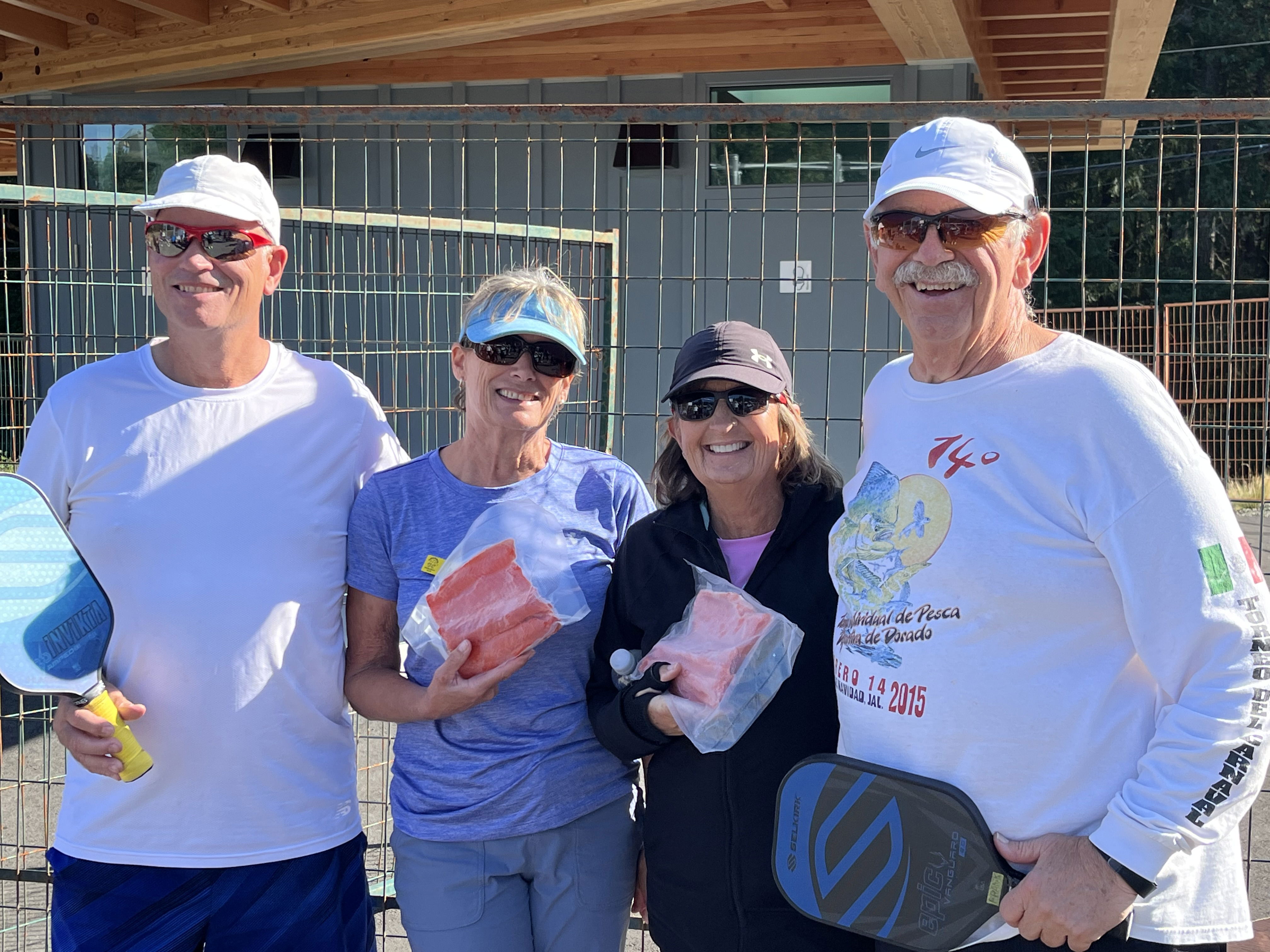
Second Place team
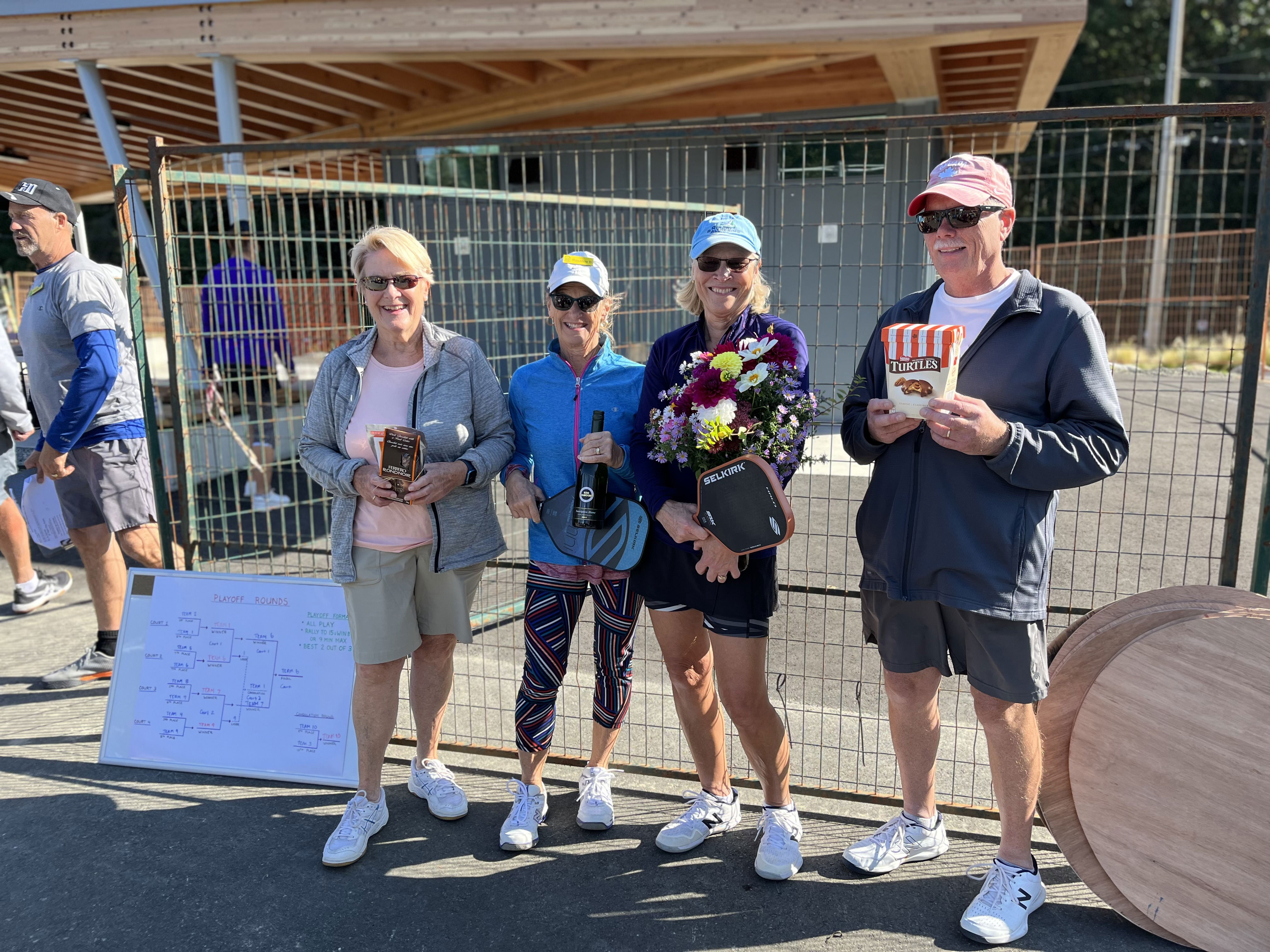
Third Place Team
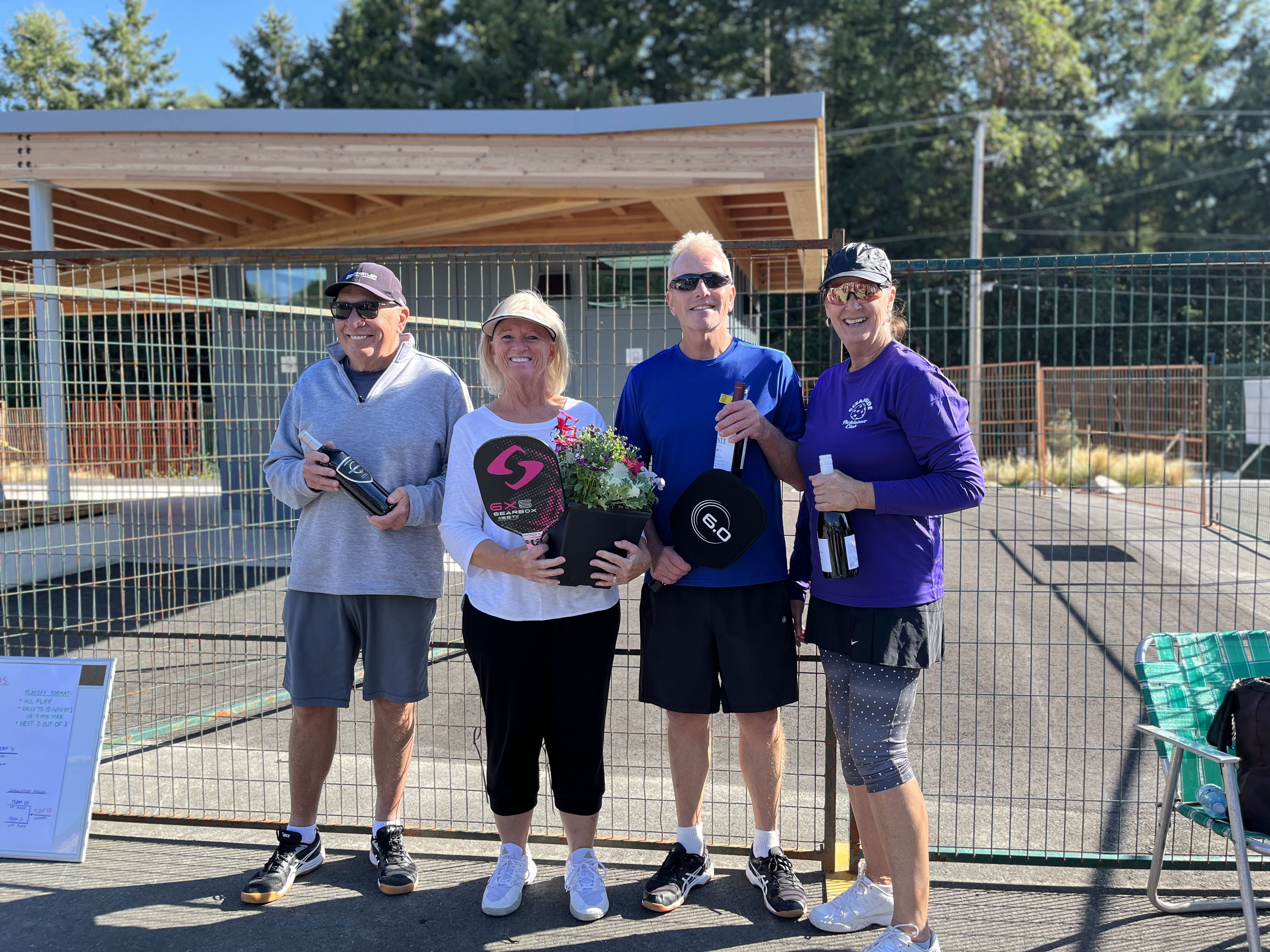
Fourth Place Team
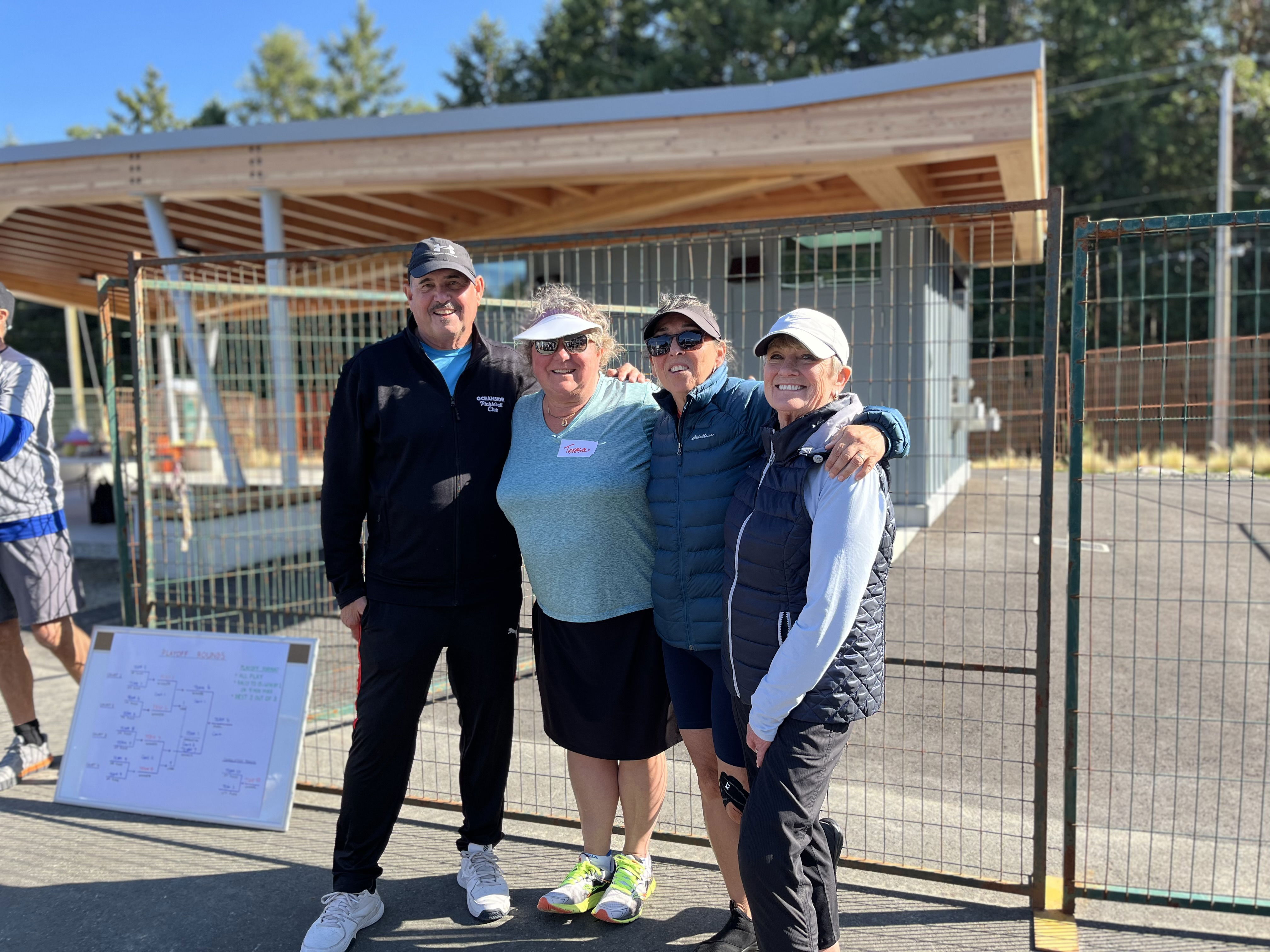
Playoff Board
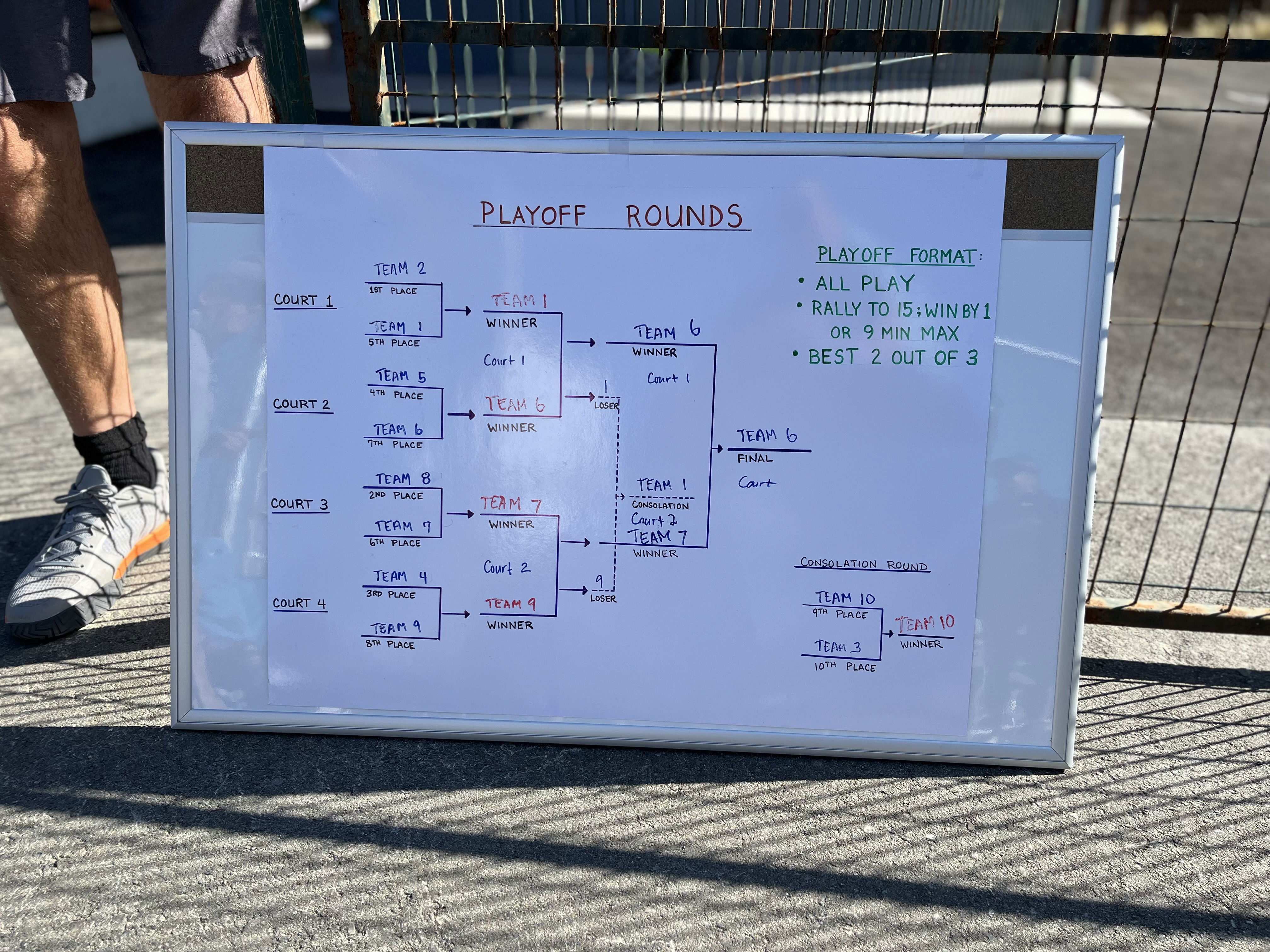
Tournament Coordinator - Wade Dawe
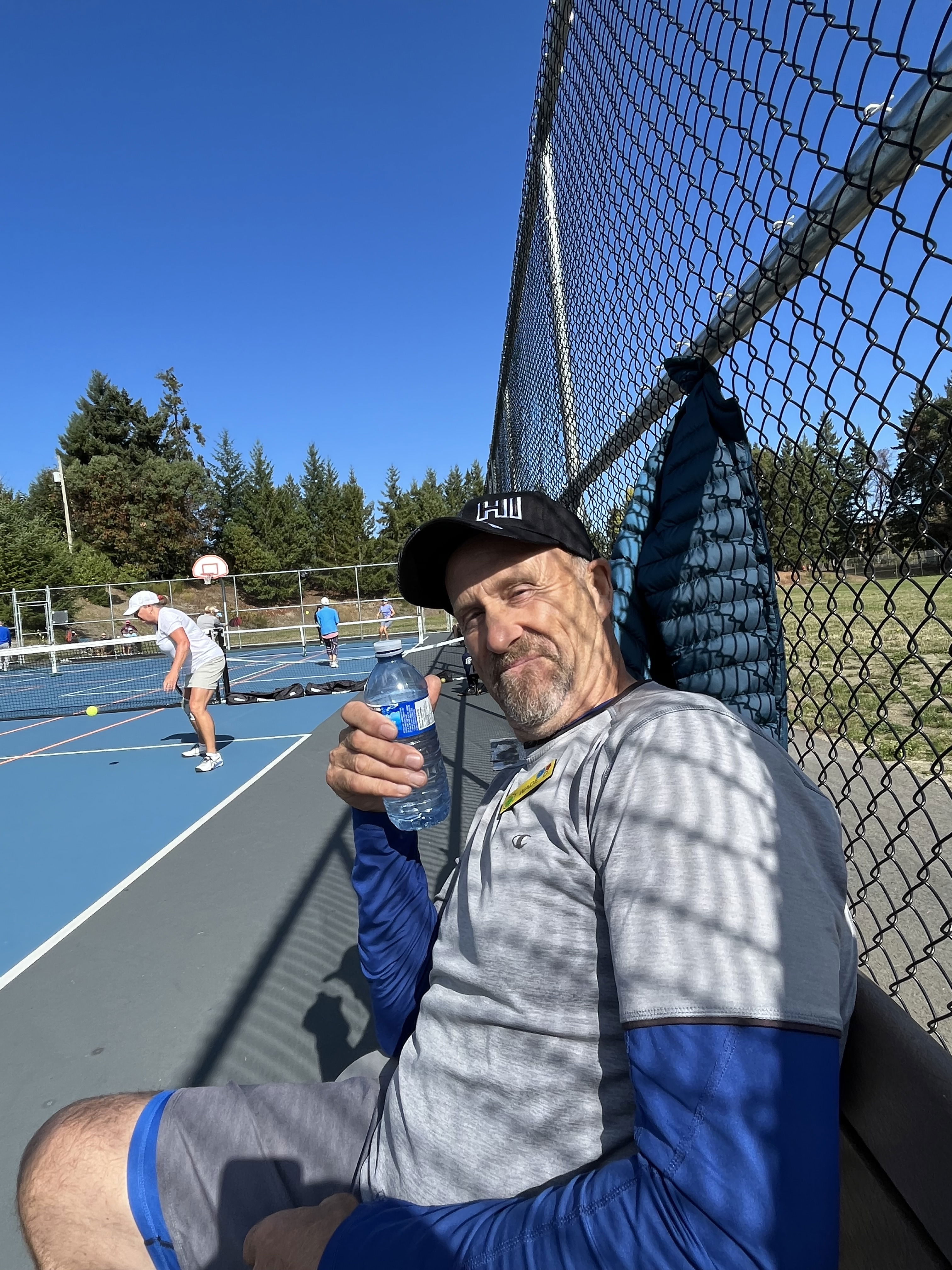
Sponsors & Contributors
2025 Season Sponsor
We'd like to sincerely thank COASTAL COMMUNITY PRIVATE WEALTH GROUP (Shawn Heidema) for their generous donation of $1,500.
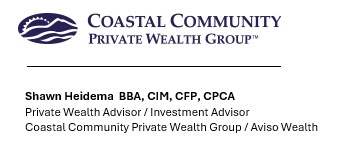
Thank You Shawn Heidema
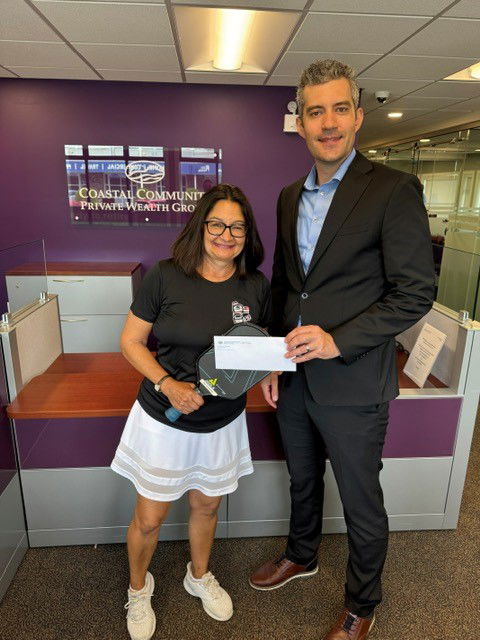
2025 Silly Olympics Tournament Sponsors
We'd like to acknowledge and thank all of our generous sponsors and donors for our club's recent silly Olympics Tournament namely:
$100 Donation from Sharon Whitehead with Royal Lepage
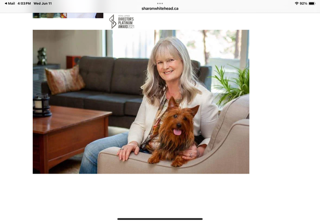
Beautiful Gift Baskets and Gift Certificates Donated by Ricky's Restaurant Parksville
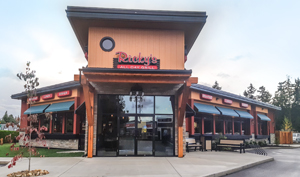
Fantastic Fresh Fruit Plates Donated by Quality Foods Nanoose Along With A Shade Canopy

Delicious Coffee and Cups Donated By Tim Hortons
NBPC member Vicki Voros kindly donated gift cards, fellow member Chris Thomas donated beautiful greeting cards and member Greg Clarke donated a hand turned maple burl bowl.
Membership information
2026 Membership Registration Open: Registration is now open for membership in our club for the 2026 season.
You can go to our membership page on Pickleball Canada if you are interested in joining the Club by clicking HERE
________________________________________________________
When you join the Nanoose Bay Pickleball Club you may be asked to self-assess using the USAPA Skill Assessment Forms.
The forms can be found below:
Rating 3.0 Assessment Form
F.A.Q
This section is being revised
Links
Membership Link to Pickleball Canada - Click HERE
Link to Pickleball BC Website - Click HERE
Link to Pickleball BC Newsletter - Click HERE
Tournaments in BC 2025 - Click (Link Will Be Updated Soon) HERE
Tournaments in Canada - Click (Link Will Be Updated Soon)HERE
2025 Official Rule Book - Click HERE
Pickleball Canada Insurance Program Information - Click HERE
Mike Bellis (We would like to thank Mike Bellis, a fellow pickler, and Haida artist from Nanoose Bay, Vancouver Island, BC, Canada for his generous gift of our Club’s logo. You can find his other artwork at:) - click HERE
T Shirts For Sale
T-Shirt Purchase Details - Information regarding the purchase of Club T-Shirts will be coming once finalized.
